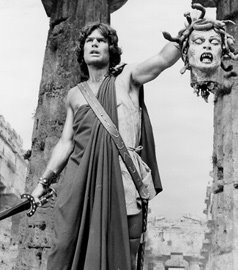Clash of the Titans: Gardner vs. Percy

After mentioning Walker Percy and John Gardner back to back, I'd be remiss in not pointing out that Gardner's review of Percy's Lancelot, a book I happen to like a lot (it was my first Percy read), ended on a sour note:
Fiction, at its best, is a means of discovery, a philosophical method. By that standard, Walker Percy is not a very good novelist; in fact Lancelot, for all its dramatic and philosophical intensity, is bad art, and what's worse, typical bad art. Like Tom Stoppard's plays, it fools around with philosophy, only in this case not for laughs but for fashionable groans. Art, it seems to me, should be a little less pompous, a lot more serious. It should stop sniveling and go for answers or else shut up.
One thing I've never thought about Walker Percy is that he didn't "go for answers." In fact, Gardner concedes as much earlier in the review. His problem was, he didn't like Percy's answer. "But surely everyone must know by now," he wrote, "that Kierkegaard's answer is stupid and dangerous. Why Abraham's leap of faith and not Hitler's? Lancelot himself makes that point."
What Garder perhaps did not appreciate, seeing the novel as a philosophical method in tandem with philosophy proper (and therefore bound to its sense of what "everyone must know by now," is that a novelist might arrive at answers philosophy has already passed over. Percy shakes up the reader's assumptions enough that the seemingly outmoded answer takes on new relevance. In Flannery O'Connor's terms, he's shouting so that the deaf can hear.
And part of his technique, as Gardner notes, is to have his protagonist Lancelot raise the supposedly fatal objection himself, only to let the reader overrule him.



